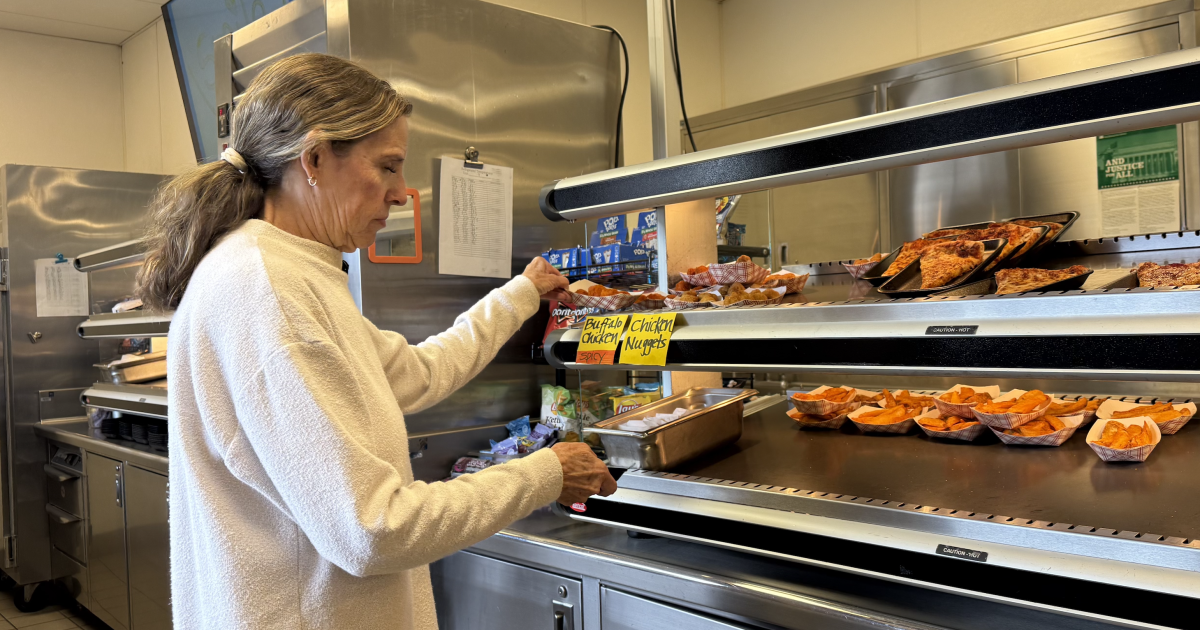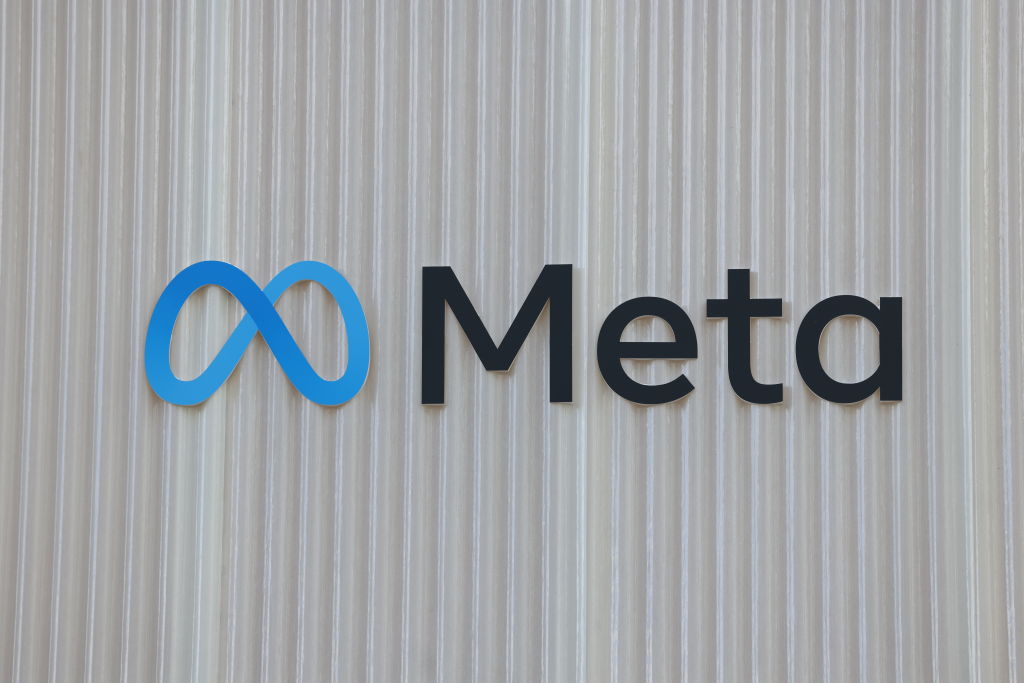Akın MS (2024) New trend in online shopping: L-commerce (live stream commerce) and a model proposal for consumer adoption. Eskişeh Osmangazi Üniversitesi İİBF Derg 19(2):474–488. https://doi.org/10.17153/oguiibf.1384721
Akosah-Twumasi P, Emeto TI, Lindsay D, Tsey K, Malau-Aduli BS (2018) A systematic review of factors that influence youths career choices—the role of culture. Front Educ 3:58. https://doi.org/10.3389/feduc.2018.00058
Al-Gharibah OB, Mahfod JO (2022) The influence of personality traits on tourists’ intention to visit green hotel in Qatar: the role of attitude and perceived value. Geoj Tour Geosites 45(4spl):1602–1609. https://doi.org/10.30892/gtg.454spl09-980
Anthony G, Mensah I, Amissah EF (2023) Factors influencing undergraduate hospitality students’ intentions to choose careers in the hospitality industry. J Hospitality Tour Educ 35(4):317–332. https://doi.org/10.1080/10963758.2021.1963754
Asante K, Novak P (2024) When the push and pull factors in digital educational resources backfire: the role of digital leader in digital educational resources usage. Educ Inf Technol 29(6):6553–6578. https://doi.org/10.1007/s10639-023-12095-8
Bai X, Aw EC-X, Tan GW-H, Ooi K-B (2024) Livestreaming as the next frontier of e-commerce: a bibliometric analysis and future research agenda. Electron Commer Res Appl 65(C):101390. https://doi.org/10.1016/j.elerap.2024.101390
Bojuwoye O, Mbanjwa S (2006) Factors impacting on career choices of technikon students from previously disadvantaged high schools. J Psychol Afr 16(1):3–16. https://doi.org/10.1080/14330237.2006.10820099
Brazier CÉ, Masdonati J, Borges A, Fedrigo L, Cerantola M (2024) Drivers of involuntary career changes: A qualitative study of push, pull, anti-push, and anti-pull factors. J Career Dev 51(3):303–326. https://doi.org/10.1177/08948453241246720
Cai J, Wohn DY, Mittal A, Sureshbabu D (2018) Utilitarian and hedonic motivations for live streaming shopping Proceedings of the 2018 ACM International Conference on Interactive Experiences for TV and Online Video, SEOUL, Republic of Korea
Cai S, Li S, Xiao W, Shen M (2024) Livestreaming sales strategy considering valuation correlation and influence effect. Electron Commer Res Appl 63:101346. https://doi.org/10.1016/j.elerap.2023.101346
Carrasco R (1999) Transitions to and from self-employment in Spain: an empirical analysis. Oxf Bull Econ Stat 61(3):315–341. https://doi.org/10.1111/1468-0084.00132
Chang HH, Wong KH, Li SY (2017) Applying push-pull-mooring to investigate channel switching behaviors: M-shopping self-efficacy and switching costs as moderators. Electron Commer Res Appl 24:50–67. https://doi.org/10.1016/j.elerap.2017.06.002
Cheung R, Arnold J (2014) The impact of career exploration on career development among Hong Kong Chinese university students. J Coll Stud Dev 55(7):732–748. https://doi.org/10.1353/csd.2014.0067
China Internet Network Information Center (2025) The 55th statistical report on China’s internet development https://www.cnnic.com.cn/IDR/ReportDownloads/202505/P020250514564119130448.pdf
Choi K, Kim D-Y (2013) A cross cultural study of antecedents on career preparation behavior: learning motivation, academic achievement, and career decision self-efficacy. J Hospit Leis, Sport Tour Educ 13:19–32. https://doi.org/10.1016/j.jhlste.2013.04.001
Ciki KD, Tanriverdi H (2024) Examining the relationships among nature-based tourists’ travel motivations, ecologically responsible attitudes and subjective well-being within the scope of self-determination theory. Curr Issues Tour 27(15):2363–2368. https://doi.org/10.1080/13683500.2023.2250509
Dawes J (2008) Do data characteristics change according to the number of scale points used? An experiment using 5-point, 7-point and 10-point scales. Int J Mark Res 50(1):61–77. https://doi.org/10.1177/147078530805000106
Dawson C, Henley A (2012) Push” versus “pull” entrepreneurship: an ambiguous distinction? Int J Entrep Behav Res 18(6):697–719. https://doi.org/10.1108/13552551211268139
Deci EL, Olafsen AH, Ryan RM (2017) Self-determination theory in work organizations: the state of a science. Annu Rev Organ Psychol Organ Behav 4:19–43. https://doi.org/10.1146/annurev-orgpsych-032516-113108
Di Meglio G, Barge-Gil A, Camiña E, Moreno L (2022) Knocking on employment’s door: Internships and job attainment. High Educ 83(1):137–161. https://doi.org/10.1007/s10734-020-00643-x
Dörnyei, Z (2007). Research methods in applied linguistics: Quantitative, qualitative, and mixed methodologies. Oxford University Press. https://elt.oup.com/catalogue/items/global/linguistics/oxford_applied_linguistics/9780194422581?cc=global&selLanguage=en&mode=hub
Dryglas D, Salamaga M (2018) Segmentation by push motives in health tourism destinations: a case study of Polish spa resorts. J Destin Mark Manag 9:234–246. https://doi.org/10.1016/j.jdmm.2018.01.008
Duong LN, Pham LH, Hoang TTP (2023) Applying push and pull theory to determine domestic visitors’ tourism motivations. J Tour Serv 14(27):136–160. https://doi.org/10.29036/jots.v14i27.554
Engle RL, Dimitriadi N, Gavidia JV, Schlaegel C, Delanoe S, Alvarado I, He X, Buame S, Wolff B (2010) Entrepreneurial intent: a twelve‐country evaluation of Ajzen’s model of planned behavior. Int J Entrep Behav Res 16(1):35–57. https://doi.org/10.1108/13552551011020063
Etikan I, Musa SA, Alkassim RS (2016) Comparison of convenience sampling and purposive sampling. Am J Theor Appl Stat 5(1):1–4. https://doi.org/10.11648/j.ajtas.20160501.11
Ferreira S, Pereira O, Simões C (2023) Determinants of consumers’ intention to visit green hotels: Combining psychological and contextual factors. Journal of Vacation Marketing, ahead-of-print(ahead-of-print), 13567667231217755. https://doi.org/10.1177/13567667231217755
Fossen FM, Büttner TJM (2013) The returns to education for opportunity entrepreneurs, necessity entrepreneurs, and paid employees. Econ Educ Rev 37:66–84. https://doi.org/10.1016/j.econedurev.2013.08.005
Fung A, He W, Cao S (2023) Cultural capitals and creative labour of short video platforms: a study of wanghong on Douyin. Cultural Trends 32(3):264–279. https://doi.org/10.1080/09548963.2022.2082862
Genoveva G, Adinda S, Kartawaria FN (2023) Environment friendly coffee shop intentions: How does peer pressure mediate among millennials? J Manaj Indones 23(2):156–167. https://doi.org/10.25124/jmi.v23i2.4197
Ghasrodashti EK (2018) Explaining brand switching behavior using pull–push–mooring theory and the theory of reasoned action. J Brand Manag 25(4):293–304. https://doi.org/10.1057/s41262-017-0080-2
Ghazali NCM, Suppian Z, Zaini SH (2022) Factors influencing students’ motivation towards learning. Cakrawala Pendidik: J Ilm Pendidik 41(1):259–270. https://doi.org/10.21831/cp.v41i1.45883
Gokuladas VK (2010) Factors that influence first‐career choice of undergraduate engineers in software services companies. Career Dev Int 15(2):144–165. https://doi.org/10.1108/13620431011040941
Gong Y, Wang L (2023) Teacher professional identity, work engagement, and emotion influence: How do they affect teachers’ career satisfaction. Int J Educ, Sci, Technol Eng 6(2):80–92. https://doi.org/10.36079/lamintang.ijeste-0602.611
Gorgievski MJ, Stephan U, Laguna M, Moriano JA (2017) Predicting entrepreneurial career intentions: values and the theory of planned behavior. J Career Assess 26(3):457–475. https://doi.org/10.1177/1069072717714541
Guo L, Hu X, Lu J, Ma L (2021) Effects of customer trust on engagement in live streaming commerce: mediating role of swift guanxi. Internet Res 31(5):1718–1744. https://doi.org/10.1108/INTR-02-2020-0078
Hair Jr JF, Black WC, Babin BJ, Anderson RE (2013) Multivariate data analysis (7th ed.). Pearson International. https://elibrary.pearson.de/book/99.150005/9781292035116
Hair Jr JF, Gabriel MLDS, da Silva D, Junior SB (2019) Development and validation of attitudes measurement scales: Fundamental and practical aspects. RAUSP Manag J 54(4):490–507. https://doi.org/10.1108/RAUSP-05-2019-0098
Han X (2022) Platform as new “daddy”: China’s gendered wanghong economy and patriarchal platforms behind. Internet Policy Rev 11(1):1–34. https://doi.org/10.14763/2022.1.1631
Haq MM, Miah M, Biswas S, Rahman SMM (2023) The impact of deontological and teleological variables on the intention to visit green hotel: the moderating role of trust. Heliyon 9(4):e14720. https://doi.org/10.1016/j.heliyon.2023.e14720
Hatane SE, Setiono FJ, Setiawan FF, Semuel H, Mangoting Y (2021) Learning environment, students’ attitude and intention to enhance current knowledge in the context of choosing accounting career. J Appl Res High Educ 13(1):79–97. https://doi.org/10.1108/JARHE-06-2019-0156
Hejazi R, Bazrafshan A (2013) The survey of graduated accounting students’ interest in management accounting: evidence of Iran. Open J Acc 2(3):87–93. https://doi.org/10.4236/ojacct.2013.23011
Henseler J, Ringle CM, Sarstedt M (2015) A new criterion for assessing discriminant validity in variance-based structural equation modeling. J Acad Mark Sci 43(1):115–135. https://doi.org/10.1007/s11747-014-0403-8
Hora MT, Parrott E, Her P (2020) How do students conceptualise the college internship experience? Towards a student-centred approach to designing and implementing internships. J Educ Work 33(1):48–66. https://doi.org/10.1080/13639080.2019.1708869
HSBC Business Go (2023) E-commerce and livestream shopping in China–A complete guide. https://www.businessgo.hsbc.com/en/article/china-ecommerce-livestream-shopping
Hsu C-L, Lin JC-C, Miao Y-F (2020) Why are people loyal to live stream channels? The perspectives of uses and gratifications and media richness theories. Cyberpsychol Behav Soc Netw 23(5):351–356. https://doi.org/10.1089/cyber.2019.0547
Hughes JL, Camden AA, Yangchen T (2016) Rethinking and updating demographic questions: Guidance to improve descriptions of research samples. Psi Chi J Psychological Res 21(3):138–151. https://doi.org/10.24839/2164-8204.jn
Hui K, Lent RW (2018) The roles of family, culture, and social cognitive variables in the career interests and goals of Asian American college students. 65(1), 98-109. https://doi.org/10.1037/cou0000235
Hulland J, Baumgartner H, Smith KM (2018) Marketing survey research best practices: evidence and recommendations from a review of JAMS articles. J Acad Mark Sci 46:92–108. https://doi.org/10.1007/s11747-017-0532-y
Imari I, Wardana ETDRW, Mintarti SU, Haryono A (2020) The effect of attitude, subjective norm and perceived behavioral control on students’ intention to choose sharia economics study programs. Manag Sci Lett 10:3119–3126. https://doi.org/10.5267/j.msl.2020.5.011
Jing X, Peng L, Dai K (2021) Why Chinese students choose to pursue secondary education in Canada: an empirical investigation based on push–pull model. Asia Pac Educ Rev 22(4):623–636. https://doi.org/10.1007/s12564-021-09693-x
Jun Y, Xiao-Hui S, Yan G (2021) The “competition” for training cross border e-commerce talents in China on the background of “internet plus. J High Educ Theory Pr 21(6):219–231. https://articlearchives.co/index.php/JHETP/article/view/2970/2948
Jung J, Han H, Oh M (2017) Travelers’ switching behavior in the airline industry from the perspective of the push-pull-mooring framework. Tour Manag 59:139–153. https://doi.org/10.1016/j.tourman.2016.07.018
Koc S, Memduhoglu HB (2020) A model test towards university students’ cheating behavior in the context of the theory of planned behavior. Cypriot J Educ Sci 15(4):727–748. https://doi.org/10.18844/cjes.v15i4.5056
Kock N (2015) Common method bias in PLS-SEM: A full collinearity assessment approach. Int J e-Collab 11(4):1–10. https://doi.org/10.4018/ijec.2015100101
Lee PC, Lee MJ, Dopson LR (2019) Who influences college students’ career choices? An empirical study of hospitality management students. J Hosp Tour Educ 31(2):74–86. https://doi.org/10.1080/10963758.2018.1485497
Lestari N, Rosman D (2024) Factors influencing hospitality students’ career goals in Indonesia. Academica Turistica Tour Innov J 17(1):53–62. https://doi.org/10.26493/2335-4194.17.53-62
Li H, Haq IU, Nadeem H, Albasher G, Alqatani W, Nawaz A, Hameed J (2020) How environmental awareness relates to green purchase intentions can affect brand evangelism? Altruism and environmental consciousness as mediators. Rev Argent de Clínica Psicol 29(5):811–825. https://doi.org/10.24205/03276716.2020.1079
Li R, Abidin C (2025) The nesting strategies of e-commerce wanghong: promotional temporalities in online shopping festivals on Chinese platforms. Soc Media + Soc 11(2):1–15. https://doi.org/10.1177/20563051251349742
Li Y, García-de-Frutos N, Ortega-Egea JM (2025) Impulse buying in live streaming e-commerce: a systematic literature review and future research agenda. Comput Hum Behav Rep. 19:100676. https://doi.org/10.1016/j.chbr.2025.100676
Lin C-L, Jin YQ, Zhao Q, Yu S-W, Su Y-S (2021) Factors influence students’ switching behavior to online learning under COVID-19 pandemic: a push–pull–mooring model perspective. Asia-Pac Educ Researcher 30(3):229–245. https://doi.org/10.1007/s40299-021-00570-0
Ma Y (2021) To shop or not: Understanding Chinese consumers’ live-stream shopping intentions from the perspectives of uses and gratifications, perceived network size, perceptions of digital celebrities, and shopping orientations. Telemat Inf 59:101562. https://doi.org/10.1016/j.tele.2021.101562
Ma Y (2023) Singles’ day in China – Statistics & facts. https://www.statista.com/topics/7112/singles-day-in-china/#topicOverview
Margaryan S, Saniter N, Schumann M, Siedler T (2022) Do internships pay off? The effects of student internships on earnings. J Hum Resour 57(4):1242–1275. https://doi.org/10.3368/jhr.57.4.0418-9460R2
Nasution MA, Afniyeni, Rusmayanthi KI, Rahmat, Wanti D (2024) The influence of internship programs on student work readiness with motivation as a moderating variable. Innovative: J Soc Sci Res 4(2):1628–1637. https://doi.org/10.31004/innovative.v4i2.9619
Nawabi S, Javed MQ, Shujaullaand S, Ulfat H (2019) Parental influence on career choice of their children: literature review. Int J Adv Res 7(Mar):221–227. https://doi.org/10.21474/IJAR01/8625
Ng Y-H, Lai S-P, Su Z-P, Yap J-Y, Teoh H-Q, Lee H (2017) Factors influencing accounting students’ career paths. J Manag Dev 36(3):319–329. https://doi.org/10.1108/JMD-11-2015-0169
Niloy AC, Sultana J, Alam JB, Ghosh A, Farhan KM (2023) What triggers you to buy green products? Explaining through an extended TPB model. Asia-Pac J Manag Res Innov 19(1):25–39. https://doi.org/10.1177/2319510X231171195
Ou, X (2024). E-commerce market GMV in China 2012-2022. https://www.statista.com/statistics/1129543/china-e-commerce-market-gross-merchandise-volume/
Park HJ, Lin LM (2020) The effects of match-ups on the consumer attitudes toward internet celebrities and their live streaming contents in the context of product endorsement. J Retail Consum Serv 52:101934. https://doi.org/10.1016/j.jretconser.2019.101934
Pianda D, Hilmiana H, Widianto S, Sartika D (2024) The impact of internship experience on the employability of vocational students: A bibliometric and systematic review. Cogent Bus Manag 11(1):2386465. https://doi.org/10.1080/23311975.2024.2386465
Piras R (2021) Migration flows by educational attainment: Disentangling the heterogeneous role of push and pull factors. J Regional Sci 61(3):515–542. https://doi.org/10.1111/jors.12519
Podsakoff PM, MacKenzie SB, Lee J-Y, Podsakoff NP (2003) Common method biases in behavioral research: A critical review of the literature and recommended remedies. J Appl Psychol 88(5):879–903. https://doi.org/10.1037/0021-9010.88.5.879
Portela-Pruaño A, Rodríguez-Entrena MJ, Torres-Soto A, Nieto-Cano JM (2022) Push and pull reasons underpinning vulnerable young people’s decisions regarding re-engagement with education and training. Child Youth Serv Rev 143:106656. https://doi.org/10.1016/j.childyouth.2022.106656
Prabawa IWSW, Pertiwi PR (2020) The digital nomad tourist motivation in Bali: Exploratory research based on push and pull theory. Athens J Tour 7(3):161–174. https://doi.org/10.30958/ajt.7-3-3
Rahman AWA, Mahmud MI, Mansor AZ, Rasul MS, Mokhtar N, Rohanzai R, Abd Razak NN (2024) Level of knowledge and attitude in career choice of undergraduates students. Int J Academic Res Bus Soc Sci 14(8):1115–1123. https://doi.org/10.6007/IJARBSS/v14-i8/22483
Rhein D, Phillips B (2024) American international students’ motivation to study abroad in Thailand. Globalisation, Societies Educ 22(5):790–805. https://doi.org/10.1080/14767724.2022.2160970
Rheinberg, F, & Engeser, S (2018). Intrinsic motivation and flow. In J. Heckhausen & H. Heckhausen (Eds.), Motivation and action (pp. 579-622). Springer International Publishing. https://doi.org/10.1007/978-3-319-65094-4_14
Rokita-Poskart D, Koziarska A, Ostrowska A, Kucińska-Landwójtowicz A, Tataruch M (2024) Factors of pre-war educational migration: An investigation of polish medical and dental students in Ukraine. BMC Med Educ 24(1):492. https://doi.org/10.1186/s12909-024-05464-5
Saidin A, Adanan SA, Bustamam KS, Sani AIA (2024) Accounting internship: Unlocking skills and perceived value of future career. Information Management and Business Review 16(3(I):446–457
Saleh F, Ryan C (1991) Analysing service quality in the hospitality industry using the SERVQUAL model. Serv Industries J 11(3):324–345. https://doi.org/10.1080/02642069100000049
Salehpour G, Roohani A (2020) Relationship between intrinsic/extrinsic motivation and L2 speaking skill among Iranian male and female EFL learners. Bellaterra J Teach Learn Lang Lit 13(1):43–59. https://doi.org/10.5565/rev/jtl3.803
Sarstedt M, Mooi E (2019) A concise guide to market research: The process, data, and methods using IBM SPSS statistics (3rd ed.). Springer Berlin, Heidelberg. https://doi.org/10.1007/978-3-662-56707-4
Segal G, Borgia D, Schoenfeld J (2005) The motivation to become an entrepreneur. Int J Entrep Behav Res 11(1):42–57. https://doi.org/10.1108/13552550510580834
Shehawy YM (2023) In green consumption, why consumers do not walk their talk: A cross cultural examination from Saudi Arabia and UK. J Retail Consum Serv 75:103499. https://doi.org/10.1016/j.jretconser.2023.103499
Sun J, Chi T (2018) Key factors influencing the adoption of apparel mobile commerce: An empirical study of Chinese consumers. J Text Inst 109(6):785–797. https://doi.org/10.1080/00405000.2017.1371828
Susanty A, Handoko A, Puspitasari NB (2020) Push-pull-mooring framework for e-commerce adoption in small and medium enterprises. J Enterp Inf Manag 33(2):381–406. https://doi.org/10.1108/jeim-08-2019-0227
Tehseen S, Ramayah T, Sajilan S (2017) Testing and controlling for common method variance: a review of available methods. J Manag Sci 4(2):146–175. https://doi.org/10.20547/jms.2014.1704202
Tey TCY, Moses P, Cheah PK (2020) Teacher, parental and friend influences on STEM interest and career choice intention. Issues Educ Res 30(4):1558–1575
Wang L (2021) Why do Chinese students often cheat on exams at home, but less abroad? J Res Humanit Soc Sci 9(8):60–76. https://www.questjournals.org/jrhss/papers/vol9-issue8/Ser-2/I09086061.pdf
Wang L, Gong Y, Zhang Q, Sun R, Wong PPW, Zhou W-W (2024a) Merging the theory of planned behaviour and value-belief-norm theory to predict green hotel visit intention among Chinese university students: The case from Xuzhou, China. Acta Psychol 251:104627. https://doi.org/10.1016/j.actpsy.2024.104627
Wang L, Jia H-X, Cheng S-J, Wong PPW (2024b) Extending the theory of planned behaviour to foreign students’ perceptions of traditional Chinese medical tourism. Environ Soc Psychol 9(1):1861. https://doi.org/10.54517/esp.v9i1.1861
Wang L, Tan X-F, Wang Z-X, Wong PPW (2023) Factors influencing students’ cheating behaviours: an empirical evidence from China. Int J Educ, Sci, Technol, Eng 6(1):10–20. https://doi.org/10.36079/lamintang.ijeste-0601.475
Wang L, Wong PPW (2021) Marketing of environmentally friendly hotels in China through religious segmentation: a theory of planned behaviour approach. Tour Rev 76(5):1164–1180. https://doi.org/10.1108/TR-08-2019-0327
Wang L, Wong PPW, Elangkovan NA, Chee WM (2019) Green hotel selection of Chinese consumers: a planned behavior perspective. J China Tour Res 15(2):192–212. https://doi.org/10.1080/19388160.2018.1553743
Wang L, Zhang Q, Cao M-R, Wong PPW (2022a) Use and perceptions of electronic cigarettes among young Chinese generation: expanding the theory of planned behaviour. Int J Humanit Manag Soc Sci 5(1):26–39. https://doi.org/10.36079/lamintang.ij-humass-0501.339
Wang L, Zhang Q, Wong PPW (2022b) Assessment of tourists perceived without travel risks and intention to visit night market aftermath the COVID-19 pandemic: An empirical approach. Turyzm/Tour 32(2):163–186. https://doi.org/10.18778/0867-5856.32.2.09
Wang L, Zhang Q, Wong PPW (2024c) Reexamination of consumers’ willingness to stay at green hotels: Rethinking the role of social identity theory, value-belief-norm theory, and theory of planned behavior. J Hospit Mark Manag 33(4):547–581. https://doi.org/10.1080/19368623.2023.2292639
Wang Z-X, Chee WM, Jantan AHB, Xia Y-H, Xue H, Ye M-J, Zhang Q, Wong PPW, Gong Y, Wang L (2024d) Impact of perceived value in virtual brand communities on purchase intention of domestic electric vehicles. Acta Psychol 248:104371. https://doi.org/10.1016/j.actpsy.2024.104371
Wang Z-X, Chee WM, Zhang Q, Wang L (2024e) An extended theory of planned behaviour for explaining Chinese domestic electric vehicle purchasing behaviour. Int J Humanit Manag Soc Sci 7(1):11–22. https://doi.org/10.36079/lamintang.ij-humass-0701.638
Wang Z-X, Jiang Z, Jantan AHB, Wong PPW, Wang L (2024f) The impact of perceived interactivity of virtual brand communities on consumer purchases of domestic electric vehicles in China. SAGE Open 14(4):1–17. https://doi.org/10.1177/21582440241307759
Wasim J, Youssef MH, Christodoulou I, Reinhardt R (2024) Higher education student intentions behind becoming an entrepreneur. High Educ, Skills Work-Based Learn 14(1):162–180. https://doi.org/10.1108/HESWBL-01-2023-0015
Wibowo SF, Najib M, Sumarwan U, Asnawi YH (2022) Rational and moral considerations in organic coffee purchase intention: evidence from Indonesia. Economies 10(12):308. https://doi.org/10.3390/economies10120308
Wong WW, Shahali EHM, Chan MY, Halim L (2022) Social media on students’ interestedness in STEM careers. Hong Kong J Soc Sci 59(Spring/Summer):512–518. http://hkjoss.com/index.php/journal/article/view/581
Wongsunopparat S, Deng B (2021) Factors influencing purchase decision of Chinese consumer under live streaming e-commerce model. J Small Bus Entrep Dev 9(2):1–15. https://doi.org/10.15640/jsbed.v9n2a1
Wüst K, Šimić ML (2017) Students’ career preferences: Intercultural study of Croatian and German students. Econ Socio 10(3):136–152. https://doi.org/10.14254/2071-789X.2017/10-3/10
Xiao P (2024) The rise of livestreaming e-commerce in China and challenges for regulation: a critical examination of a landmark case occurring during COVID-19 pandemic. Comput Law Security Rev 52:105955. https://doi.org/10.1016/j.clsr.2024.105955
Yamashita T, Youn G, Matsumoto J (1999) Career decision-making in college students: cross-cultural comparisons for Japan and Korea. Psychol Rep. 84(3_suppl):1143–1157. https://doi.org/10.2466/pr0.1999.84.3c.1143
Yan L, Alagas EN, Jambulingam M, Wang L (2024) Destination brand identity as a mediator between accessibility and tourist perception: Promoting Bama Yao as potential wellness tourist destination in China. Turyzm/Tour 34(1):109–120. https://doi.org/10.18778/0867-5856.34.1.10
Yulianti F, Zulfikar R, Lamsah (2023) The altruistic connection: Unraveling how altruism drives eco-friendly consumer behavior in green marketing. Int J Professional Bus Rev 8(10):1–23. https://doi.org/10.26668/businessreview/2023.v8i10.3656
Zaman NT, Sohel MS, Obaidullah M, Hossen MS, Rahman MT, Sifullah MK, Sarker MFH (2024) Factors shaping Bangladeshi students’ migration decision using push–pull theory: a focus group study. SN Soc Sci 4(1):4. https://doi.org/10.1007/s43545-023-00797-2
Zhang Q, Wong PPW, Wang L (2025) The efficacy of the theory of planned behaviour and value-belief-norm theory for predicting young Chinese intention to choose green hotels. Sci Rep. 15(1):14332. https://doi.org/10.1038/s41598-025-99447-1
Zhang X, Li Q, Lin Z (2005) E-commerce education in China: Driving forces, status, and strategies. J Electron Commer Organ 3(3):1–17. https://doi.org/10.4018/jeco.2005070101
Zhang Y, Zhang J, Li J (2018) The effect of intrinsic and extrinsic goals on work performance. Pers Rev 47(4):900–912. https://doi.org/10.1108/PR-03-2017-0086
Zhao X, Li L, Liu M, Liu J (2019) Professional education reform in colleges and universities and cultivation of college students’ innovation and entrepreneurship consciousness: Taking major of e-commerce as an example. High Educ Stud 9(2):33–44. https://doi.org/10.5539/hes.v9n2p33









